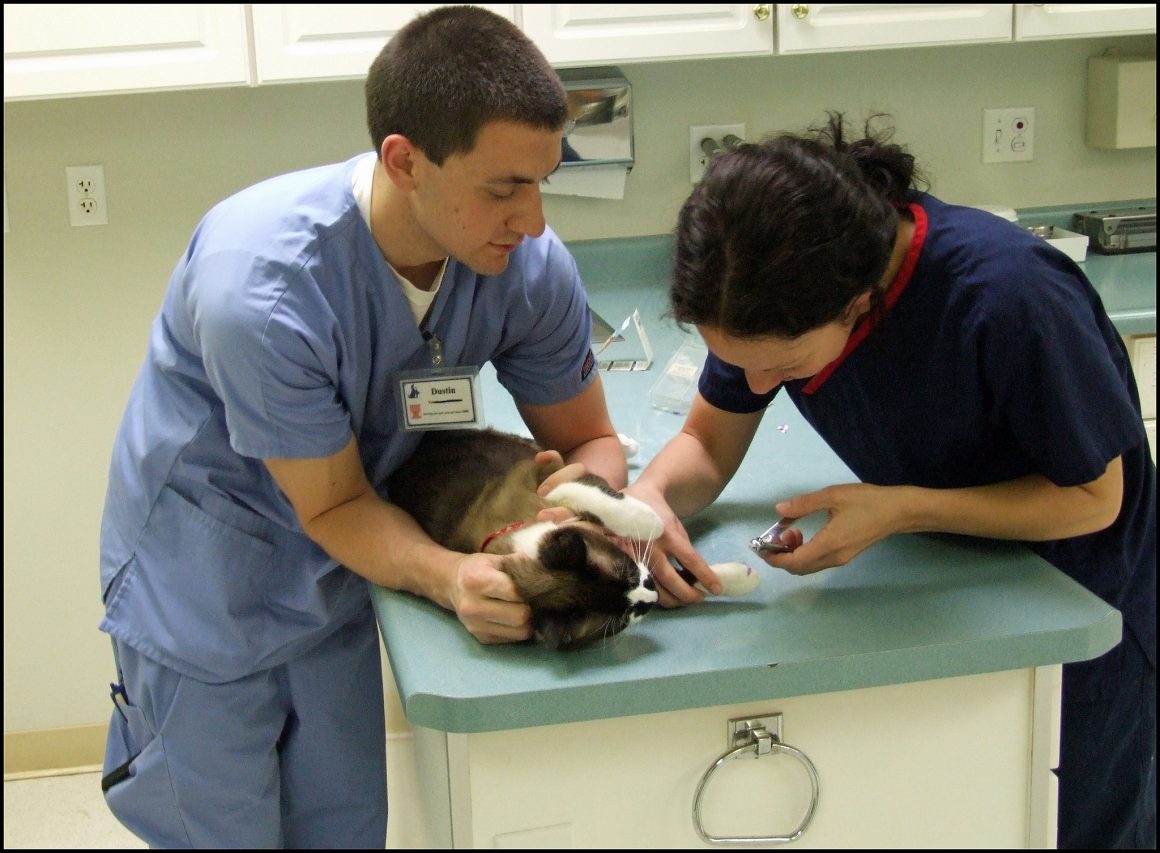
VetMed students struggling with cancelled summer work experience
By Kristy Koehler, April 16 2020—
Across Canada, students are feeling the impacts of COVID-19 as summer job offers are rescinded and internships are cancelled. At the University of Calgary, Faculty of Veterinary Medicine students are particularly worried about how they’ll gain the clinical experience necessary for entry into the field.
“It’s strongly encouraged that you find a relevant job in a private practice or doing some sort of veterinary research over the summer,” said Douglas Doyle-Baker, Students’ Union representative for the Faculty of Veterinary Medicine. “Even before the pandemic, it was already really hard to find a job in a private practice as a veterinary student, and now this has just compounded things. People who had jobs already lined up for the summer have now lost those jobs because of the factors associated with the pandemic.”
Doyle-Baker stressed that, from his perspective, it’s incredibly important to be able to refine the clinical skills learned throughout the school year and to put theoretical knowledge into practice.
“U of C is really great in comparison to many other schools in that they start us doing clinical skills in the first year,” he said. “Other schools don’t do that. And so we learn all these skills but the only way to refine them is to practice and working in a veterinary clinic really provides that environment.”
The Veterinary Medicine program at U of C is a four-year program. Students get the summers off to work, helping them to both gain experience and earn money for the following year’s tuition. The exception to this is third year students who are moving into their fourth year. These students start their clinical rotation immediately following the academic year, normally on May 1.
Doyle-Baker says he feels especially worried for these students, because their clinical rotations have been delayed until at least July 1. These students wouldn’t have applied for any summer jobs, he says, owing to the expectation of spending the summer on rotation. Adjusting the schedule will cause them considerable stress, he says.
Finances are also a major concern says Doyle-Baker, and the ability to pay tuition is an issue he’s hearing about from many students in his faculty.
“We need to be able to afford our tuition especially now with tuition increasing in the fall. Without a summer job it makes it very challenging.”
While there are some job opportunities available in other fields for the summer, Doyle-Baker says that there are plenty of students without work, all competing for those jobs. Not only that, but it’s the ability to gain relevant and meaningful experience that’s of the utmost importance for him.
“The main concern that we have is getting that relevant experience and getting those jobs in veterinary clinics,” he said.
The federal government has provided some relief over the last week, with the expansion of the Canada Summer Jobs program, but Doyle-Baker notes this isn’t nearly enough. Businesses who haven’t already applied to take on a summer student haven’t seen that deadline extended and owing to the large age range of students in the faculty, not every student would be eligible for CSJ. The program only funds students under the age of 30.
“I’m wanting to see more supports provided by the provincial and federal government,” said Doyle-Baker.
He also noted that the cancellation of the Veterinary Student Work Experience program — a provincial initiative that provided up to $10,000 for clinics who employed veterinary students — had hurt students well before the pandemic.
“It took the financial burden off the practice and allowed the students to gain that experience over the summer,” he said. “In an ideal world, we’d see renewal of a program like that, not only for veterinary students but for all students because it’s hard right now trying to get a job.”
